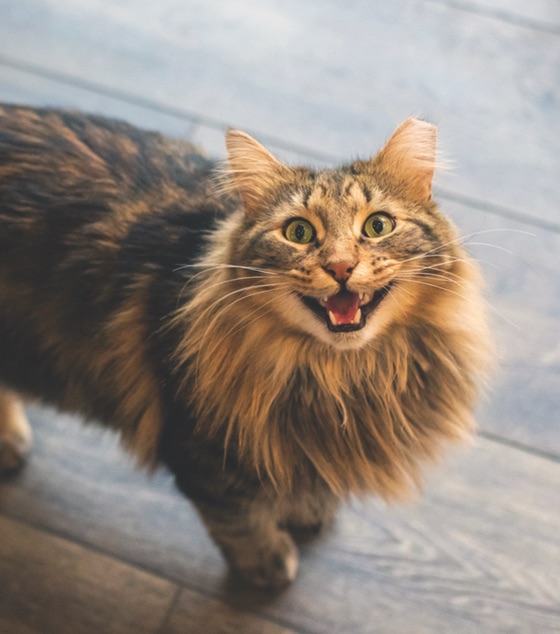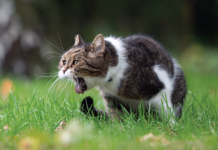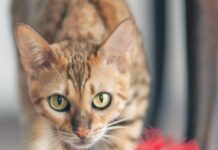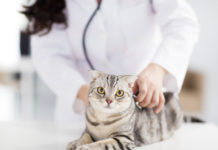My 12- or 13-year-old rescue cat has gone from vocalizing normally to practically mute in about two to three weeks. He makes meowing motions with his mouth but barely audible sounds come out with an occasional hoarse squeak interspersed. Otherwise he is fine and acting, eating, etc. normally. He is a neutered, sweet, indoor-only boy who is quite adored. Is this a cause for concern?
I can understand your concern for the change in your cat’s meow. The meow of a cat is produced primarily by the larynx, or “voice box” in the back of the throat. This muscular organ opens and closes to allow the passage of air to the lungs, protects the trachea and lungs from the getting food and other particles into them, and produces vocal sounds by tensing and relaxing in a coordinated fashion while air flows across it.
A number of conditions can affect the structure and function of the larynx, some of which can result in changes in the tone of a cat’s meow. Perhaps a review of the most common ones would be helpful.
Any inflammation that affects the tissues of the larynx may result in changes in the tone of a cat’s meow. Upper respiratory infections like calicivirus, herpes virus, and Bordetella bronchiseptica (kennel cough) can cause sufficient laryngeal inflammation to change a cat’s “voice,” as can non-infectious causes like inhaling irritants such as smoke. Allergies to inhaled irritants can exacerbate this inflammation.
In some cases, foreign bodies like plant material, linear objects like string, or bones lodged in the larynx can change the tone of their meow, and a history of having ingested any of these objects can be helpful in ruling them out.
The presence of lesions like an enlarged thyroid gland in hyperthyroid cats or tumors that can arise in the laryngeal region can alter the function of the larynx to the extent that vocalization is affected. In some cases, these tumors may be benign, and in others they may behave in a more malignant fashion.
Another possibility, although rare in cats, is dysfunction of the nerves that control the muscles of the larynx, resulting in laryngeal paralysis. Cats that suffer from this condition may produce rattling sounds (stertor) when they breathe, as the muscles of larynx do not open and close normally during inhalation and exhalation, resulting in a “flapping in the breeze” of a cat’s breath as it passes through the larynx.
Determining the cause of the change in your cat’s meow will require a careful history, physical examination, and possibly a focused examination of the laryngeal region by your veterinarian. The focused examination may require heavy sedation or general anesthesia, and your veterinarian can discuss the risks and benefits of this examination if it is deemed necessary.
I am very happy to hear that he is otherwise acting normally and doing well, as many cats with laryngeal issues show other clinical signs, including coughing, difficulty breathing and/or swallowing, nasal/ocular discharge, and/or bad breath, but I’d suggest that you consult with your veterinarian about this issue as soon as possible.
Please send us an update when you can, and best of luck




